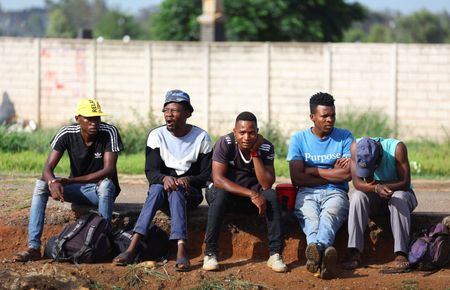By Rachel Savage
JOHANNESBURG (Reuters) – A growing number of African countries has introduced financial market policies related to environmental, social or governance issues, a study said on Thursday, as a global push to invest more sustainably gathers pace.
Seventeen countries on the continent now have some sustainability-focused policies, out of 26 surveyed by think-tank Official Monetary and Financial Institutions Forum (OMFIF) and South African bank Absa, up from 12 last year.
As tackling climate change has moved up the global agenda, more regulators have introduced environmental disclosures in a bid to prevent “greenwashing”, where companies and others make misleading statements about their environmental efforts.
The move also comes as more investors look to track and mine ESG-related data to pick winners in the transition to a low-carbon economy, and regulators work on clarifying a global baseline for climate-related disclosures from companies.
Among countries to bolster their regulations this year is Uganda, where the central bank launched a strategic five-year plan that included promoting a “sustainable financial system”, the report said, while the Namibia Stock Exchange said listed companies had to set up a social, ethics and sustainability committee.
South Africa, Mauritius, Kenya and Egypt top the report’s sustainability policy rankings, as they require banks to incorporate climate change into their risk management and reporting.
Foreign reserves measured by months of import cover fell in most countries in 2021, said the OMFIF-Absa report, which also assesses African financial markets on factors including market depth, foreign exchange access and legal standards.
But it noted improvements in enforcing legal agreements in Nigeria and Ghana and that Uganda, Ethiopia and Rwanda were planning to improve their adoption of international financial standards.
“The last two years have reinforced the need to develop domestic financial markets to protect economies from external shocks,” the report said.
“Despite these difficulties, capital market infrastructure has continued to improve across Africa.”
(Reporting by Rachel Savage; editing by Simon Jessop and Bernadette Baum)









